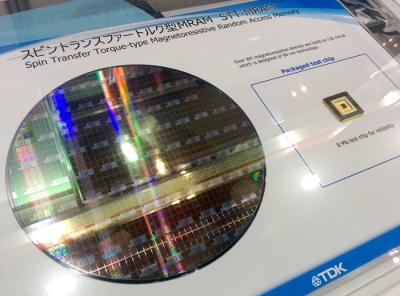Everspin raised $29 million from Global Foundries, Western Digital and others
Everspin Technologies announced that it closed a $29 million funding round, led by Global Foundries and Western Digital Capital. Existing investors (New Venture Partners, Lux Capital, Sigma Partners, Epic Ventures, and Draper Fisher Jurvetson) also joined in the round.

In October 2014 Everspin entered into a partnership with GlobalFoundries to build fully processed 300mm wafers with Everspin's ST-MRAM technology. In October it was announced that GF acquired a stake in Everspin (this is probably before this recent investment) and also acquired ST-MRAM processing equipment (40-nm).






